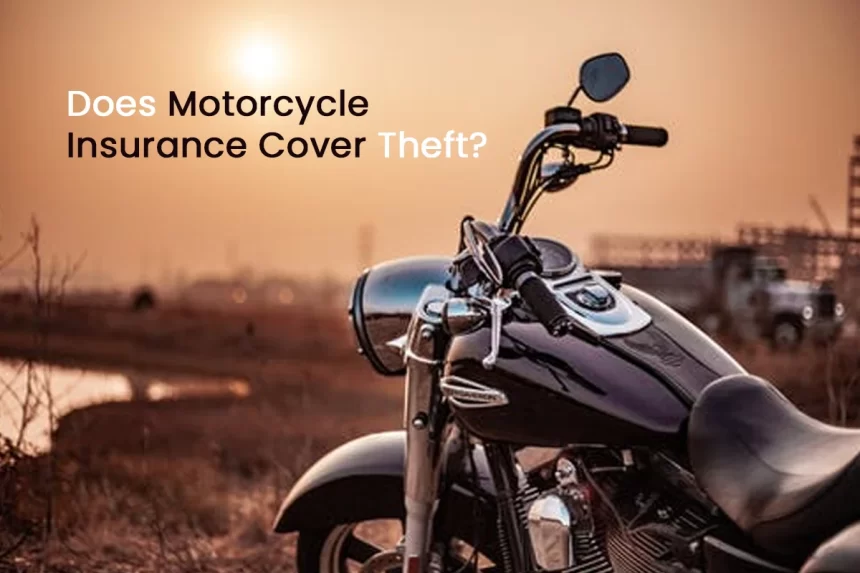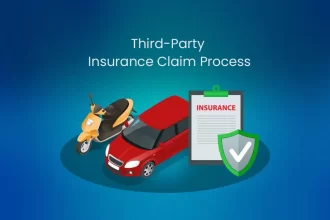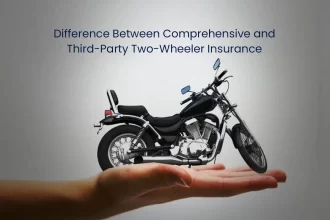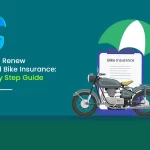Motorcycle insurance is a necessity for every biker since they are protected from a number of hazards ranging from accidents to theft. Another drawback of owning a motorcycle is that it is more prone to theft than a car; thus, the owner’s biggest concern is theft. However, does motorcycle insurance cover theft? This article will provide a step-by-step explanation of motorcycle insurance, the concept of theft coverage, the types of policies that offer theft protection, and how you can prepare in case of theft.
What is Bike Insurance?
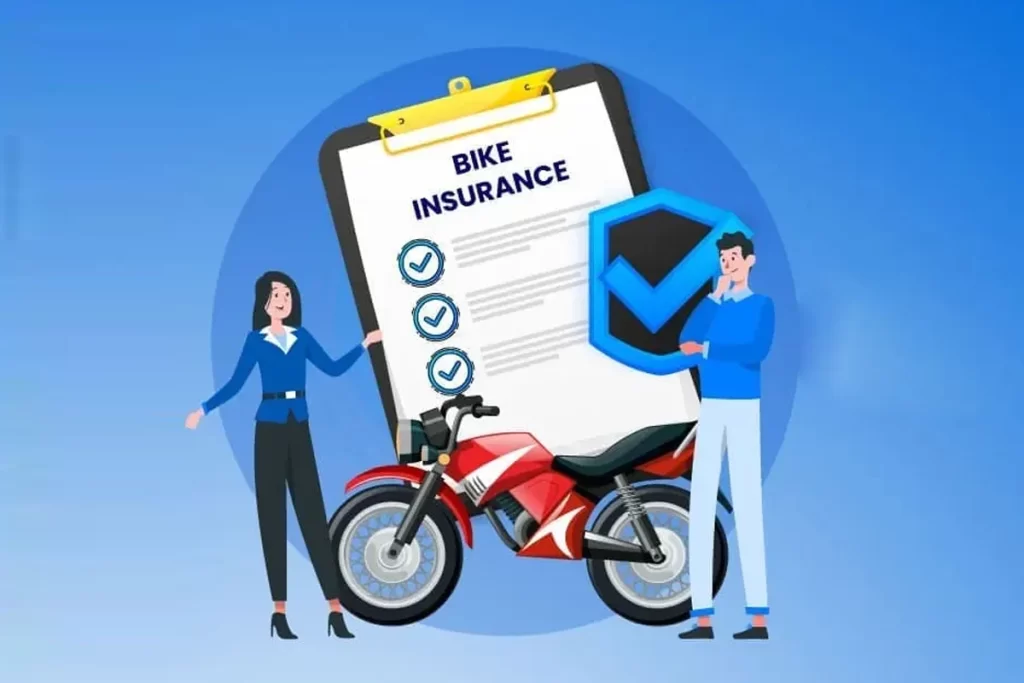
Bike insurance is simply an insurance policy that covers the rider and his/her motorcycle in the event of an accident, loss or damage to the motorcycle, or other forms of loss or damage. Some of the policies may include liability (for instance, for injuries to other people or property damages), own damage (for damage to the bike) and comprehensive (includes both liability and own damage).
Insurance companies offer various forms of insurance, and each of them has specific characteristics that determine the extent of coverage that is provided. You need to make sure that you have enough information about the policy that you are holding so as to know whether theft is included and, if it is, then the extent of coverage.
Types of Motorcycle Insurance
To know more about theft cover in two-wheeler insurance, there are a few things you need to know regarding bike insurance. There are generally three main categories:
Third Party or Liability Insurance:
- This is the minimum amount of coverage that is required to ride your bike legally in India. The liability insurance pays for the harm you or your vehicle does to other people or their property in the event of an accident. However, it does not include theft or damage to the bike that you own.
Standalone Own Damage (OD) Cover Insurance:
- The other type of insurance is own damage coverage that also covers events that are not related to collisions, such as theft. Besides theft, comprehensive insurance takes care of vandalism, accidents, natural disasters, and any other event that may occur and cause damage to your scooter or motorcycle.
Comprehensive Insurance:
- Comprehensive Insurance pays for both third-party damages as well as damages incurred to your bike. You can also opt for add-ons like roadside assistance, zero depreciation, etc.
Is It Possible to Have Motorcycle Insurance for Theft?

As for the answer to the question “does motorcycle insurance cover theft?” one has to know the kind of insurance they have. If you have OD or comprehensive insurance cover, then, indeed, your insurance cover should be able to cater for theft. These insurance policies cover incidents such as accidents, theft, fire, and vandalism.
However, if you have only liability or third-party insurance, there is usually no protection against theft. This implies that if your bike or its parts are stolen, you will have to bear all the costs of repairing or replacing the motorcycle on your own.
Let’s break this down further:
Total Insurance Protection against Theft of Products.
Own Damage and comprehensive insurance cover the following theft-related scenarios:
Theft of the Entire Motorcycle: In the event that your bike gets stolen, own damage and comprehensive coverage will cover for the bike’s worth at the time of the theft minus your deductible.
Theft of Bike Parts: Sometime, thieves may not take the whole motorcycle but parts of it, for instance, the wheels, mirrors, or even the engine. Own damage and comprehensive insurance will cover the cost of buying new parts to replace the stolen parts, excluding the deductible.
Vandalism or attempted theft: If your bike is stolen and damaged during the process or if it is vandalized, then own damage and comprehensive coverage will help in repairing the bike to the extent of the bike’s value, and you will be required to pay your deductible.
Also read: Top Bikes in India in 2024
How Does Motorcycle Insurance Cover Theft?
When it comes to motorcycle theft coverage, own damage and comprehensive insurance typically cover the following:
The Value of the Motorcycle: In the event of theft of your motorcycle and the bike is not recovered, then the insurance company will compensate you with the current market price of the bike at the time of theft. This is called the Actual Cash Value (ACV), which is the value of the item at the time of loss, reduced by its depreciation.
Custom Parts and Accessories: Most bike owners spend their money on customizing parts and accessories that include exhaust systems, motorcycle seats, and special handlebars. Some of these policies are as follows, but they may need additional coverage or an endorsement to be included in your policy.
Rental Reimbursement: If your motorcycle is stolen, some insurance companies will provide you with rental car reimbursement to help you get a car while waiting for your claim to be settled. This may be included in your policy, or it may be taken as an option and brought on as an add-on.
What’s Not Covered?
While own damage and comprehensive insurance do cover theft, there are certain limitations and exclusions to be aware of:
- Negligence: If your insurance company finds out that you were negligent in ensuring that your bike is well secured, such as leaving it without locking when you parked it in a high-risk area, then they will not pay for your claim. It is very important to ensure that your motorcycle is secure to avoid cases of theft at all times.
- Non-Factory Installed Parts: There are exclusions that can apply to some parts or accessories, especially if they are not included in the policy. This is why it is crucial to check your policy or even get an endorsement for any aftermarket parts that you have installed.
- Personal Belongings: Some of the belongings that could have been stolen from the bike at the time of theft, such as helmets, jackets, electronics, and other personal property, are not covered in the standard motorcycle insurance. Some of these items may be insured by personal property insurance or homeowners or renters insurance.
How to Claim Insurance for Bike Theft?
In case your two-wheeler is stolen, then you will have to make a claim with the insurance company. Let us assume that your Hero Splendor Plus was stolen one day ago. Here’s a step-by-step guide on how to proceed with the bike theft claim settlement process:
- Contact the Police: Contact the police and make a report of your Splendor Plus’ theft as soon as possible. Some of the information you may be expected to give may include the make, model, and VIN of the motorcycle. You should also obtain a copy of the police report because your insurance company will most certainly ask for it.
- Contact the RTO: Notify the RTO where the Hero Splendor Plus was registered. You will have to submit some paperwork and RTO documents during this process.
- Notify Your Insurance Company: Next, contact the insurance company and inform them about the theft of your two-wheeler. Along with the FIR report and RTO documents, you may have to submit the following:
- Your Driving License
- The Bike’s RC (registration certificate)
- RTO Transfer Papers: Form 28, 29, 30, and 35
- Motorcycle Insurance Policy Papers
- The original bike keys
- Provide Proof of Ownership: You may have to submit proof of ownership of the bike, including registration, title, and any receipts of customization done on the bike, such as buying of accessories. This is to enable the insurance company to come up with the value of the motorcycle and the parts that are stolen.
- Obtain the NTR: Your insurance claim cannot be processed without an NTR (No Trace Report) from the police. This certificate states that your vehicle cannot be traced and is provided after about a month from the date of the theft.
- Wait for the Claim to Be Processed: Once you have filed all the required documents with the insurance company, the insurance company will review your claim. They may try to establish the circumstances of the theft in order to rule out any possibility of an insider job or a case of negligence.
- Receive Compensation: If your claim is allowed, then the insurance company will compensate you with the actual cash value of the motorcycle you have claimed minus your out-of-pocket expenses. This amount will be according to the market price of the bike at the time of theft and not the amount you purchased it for.
Also read: Best Mileage Bikes in India
Things to Do to Avoid Having Your Motorcycle Stolen
- The worst thing that can happen is theft, and that is why own damage or comprehensive insurance are invaluable; however, prevention is always better than cure. Here are some tips to reduce the risk of motorcycle theft:
- Use a Quality Lock: Some added precautions you can take are to ensure that you lock your motorcycle using a good lock, a disc lock or chain lock, for instance.
- Park in a Secure Location: Make sure that you are parking your bike in a well-lit area, if possible in a safer place like a garage or any special motorcycle parking space.
- Use an Alarm System: Try to have an alarm or some other deterrents on your motorcycle, such as a theft deterrent device. Some insurance companies may even provide certain rebate rates for having these systems put in place.
- Track Your Bike: It is advisable to have a GPS tracker installed in your motorcycle. If it gets stolen, you are more likely to get it back.
- Be Aware of High-Theft Areas: It is advisable to not park your motorcycle in areas that are known to be prone to theft, and this should be especially so if you plan to leave it there for a long time.
Also read: Top Hero Commuter Bike
Factors That Influence Two-Wheeler Theft Insurance
The amount of coverage you receive for theft depends on several factors:
- The Value of the Motorcycle: If your bike’s value is high, then you will be paid more in case of an accident, especially if you have comprehensive coverage. Remember, this value is calculated on the Actual Cash Value (ACV) at the time of theft and not the price at which the item was bought.
- The Deductible: The Deductible is the initial amount of money that is to be paid by you before the insurance company starts contributing its share. For instance, if you prefer to pay more out of your own pocket when you need to make a claim for a theft, your premium rates will be relatively low.
- Custom Parts and Accessories: If you’ve fitted your motorcycle with any accessories or parts or if you have customized it in any way, then ensure that it is reflected in your policy. Some of these items may require extra coverage to be able to be compensated fully in case of theft.
- Where You Live: Certain places have a higher likelihood of bike theft, and these may influence the prices of insurance as well as the kind of coverage you can get. Incidents of theft are known to occur more frequently in urban centers than in rural regions.
Conclusion: Does Motorcycle Insurance Cover Theft?
Losing a bike can be very frustrating, especially if you have just bought it, but this is where an insurance policy is useful in minimizing the loss. Liability insurance does not cover theft; this is why you should get own damage or comprehensive insurance that will ensure that you are protected in the event that your motorcycle gets stolen or in the event of vandalism or any other non-collision-related damages. To be on the safer side, you need to update the terms of your policy, include custom parts and accessories if necessary, and avoid theft through taking preventive measures.
Does motorcycle insurance cover theft? Yes, it does, but it depends on the type of insurance you choose. It is therefore important to stay informed, be proactive, and know what your bike insurance policy entails so you can be well prepared in the event of an accident.
Also read: New Honda Bikes For You
Frequently Asked Questions (FAQs)
Is it possible to be compensated for a stolen motorcycle with liability insurance?
No, liability insurance only pays out for harm or damage that you do to other people or their property in an accident. It does not include theft or damage to your own motorcycle and its accessories.
Does motorcycle insurance cover theft of custom parts?
Not all policies include custom parts and accessories, and if they do, you may require getting an endorsement or adding another coverage.
What does the term Actual Cash Value (ACV) mean?
Actual Cash Value (ACV) is the approximate market price of your motorcycle at the time of theft but with consideration for the current value of the motorcycle.
Can my theft claim be denied?
Yes, claims can be denied if you fail to meet the policy conditions, such as leaving your bike unattended with the keys in the ignition. Always review your policy’s terms and conditions to avoid such issues.
Can I add theft protection to my existing motorcycle insurance?
If you have a third-party policy, you may be able to upgrade to a comprehensive or third-party fire and theft policy, which includes theft coverage. Contact your insurance provider to explore your options.
How can I reduce the cost of OD and comprehensive insurance?
You can reduce the cost of OD and comprehensive insurance by increasing your deductible, maintaining a clean driving record, or installing anti-theft devices like alarms or GPS trackers.
Does motorcycle insurance cover theft of stolen accessories?
If you have own damage or comprehensive insurance with accessory coverage, your stolen accessories may be covered, depending on the terms of your policy. Always check if accessories like helmets, saddlebags, or custom parts are included.
Can I still claim theft if my motorcycle is recovered?
If your motorcycle is recovered with damage, you can claim the cost of repairs under a comprehensive policy. However, if the bike is recovered in good condition, the theft claim may be dismissed.
How long does it take to process a theft claim?
The timeline for processing a theft claim can vary depending on the insurance provider and the complexity of the case. It typically takes a few weeks to a couple of months to settle a claim.
How to get insurance details of bike?
You can check your bike insurance online by visiting the insurance provider’s website, RTO website, IIB website, using the mParivahan app, or referring to your insurance documents.



